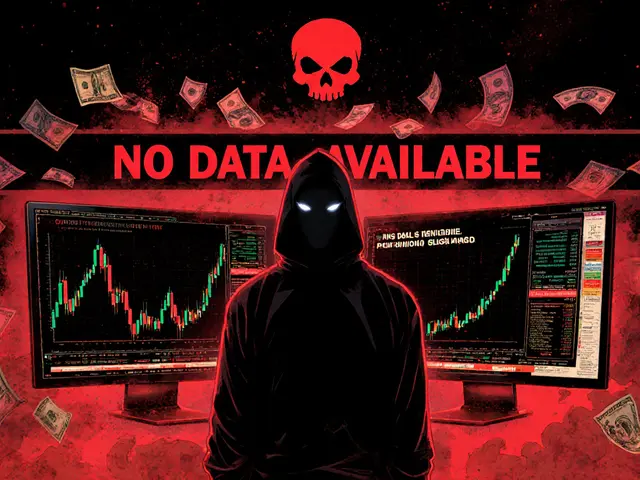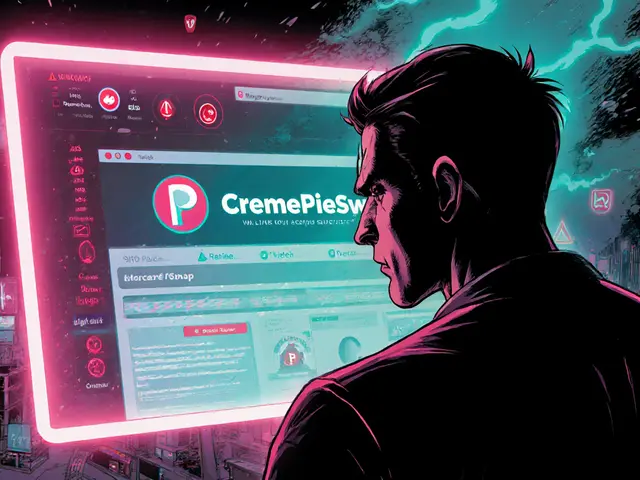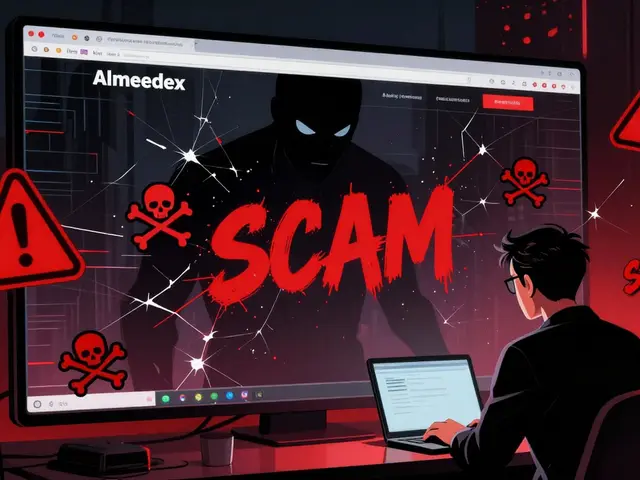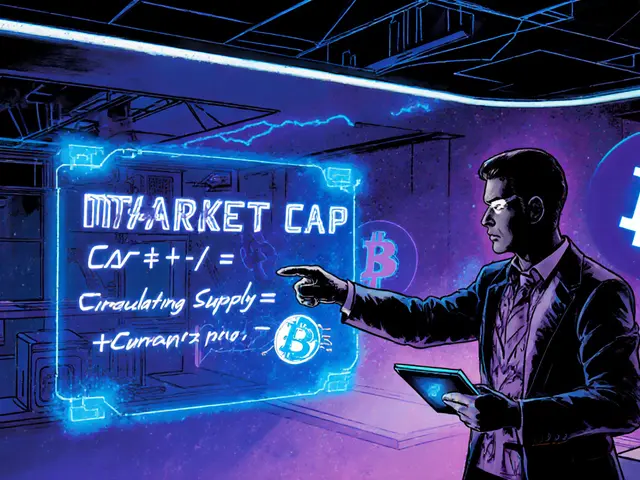- Home
- Cryptocurrency
- BitWell Crypto Exchange Review: Why This Platform Is Dead and How to Avoid Its Scams
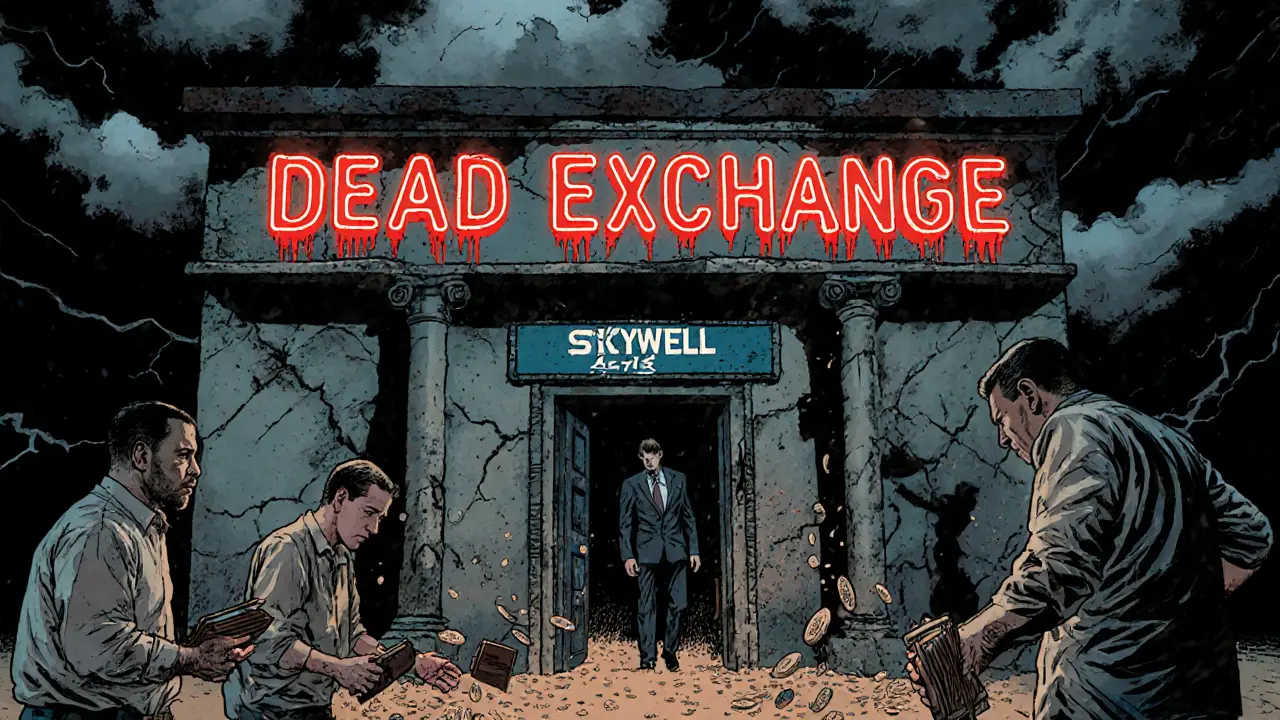
BitWell Crypto Exchange Review: Why This Platform Is Dead and How to Avoid Its Scams
BitWell was once promoted as a high-tech crypto derivatives platform - but today, it’s a cautionary tale
If you’re looking at BitWell right now, you might have seen old forum posts praising its low fees or heard someone mention its "DeFi options" feature. But those posts are from 2022 and 2023. Today, BitWell is not a functioning exchange. It’s gone. And what’s left behind is a trail of angry users, frozen accounts, and scam websites pretending to help them get their money back.
BitWell launched in 2020 claiming to be built by ex-Amazon, Morgan Stanley, and Tencent engineers. It offered spot trading with taker fees as low as 0.09% - cheaper than most exchanges at the time. It also pushed a unique product: "DeFi options," promising users could trade options on DeFi assets without owning the underlying tokens. Sounds smart, right? But here’s the problem: no one outside BitWell could verify that feature worked. And no regulator ever approved it.
Why BitWell had no business being trusted
BitWell was registered in Seychelles - a jurisdiction known for hosting unregulated crypto brokers. While exchanges like Binance and Coinbase got licenses in Dubai, Bermuda, or the U.S., BitWell operated without any official oversight. That’s not a coincidence. It’s a red flag.
According to Traders Union’s March 2025 report, BitWell never published its legal address, company registration number, or license details. All users saw was a user agreement. No real terms of service. No compliance statements. Just a website asking you to deposit crypto.
Compare that to Binance, which has licenses in over 10 countries, or Coinbase, which is publicly traded on the NYSE. BitWell didn’t just lack regulation - it avoided it on purpose. That’s how you know a platform is built to disappear.
The withdrawal nightmare: 78% of users couldn’t get their money out
Most users didn’t lose money because the market crashed. They lost it because BitWell blocked withdrawals.
Traders Union analyzed 142 verified complaints from 2023 to early 2025. In 78% of cases, users reported being unable to withdraw funds. The excuses? "Suspicious activity," "insurance fees," "verification costs," and "compliance holds." One user on Reddit said BitWell locked his $12,850 account and demanded a $2,400 fee to release it. That’s not customer service - that’s a classic ransom scheme.
Even when users finally got their money out, it wasn’t because BitWell helped. It was because they found a third-party recovery site - bitwellex.net - and begged for help. Some users reported success there, but others say it’s just another scam pretending to be a rescue service. The same site that once hosted BitWell now redirects to this recovery portal. No official announcement. No customer support email. Just silence from the original company.
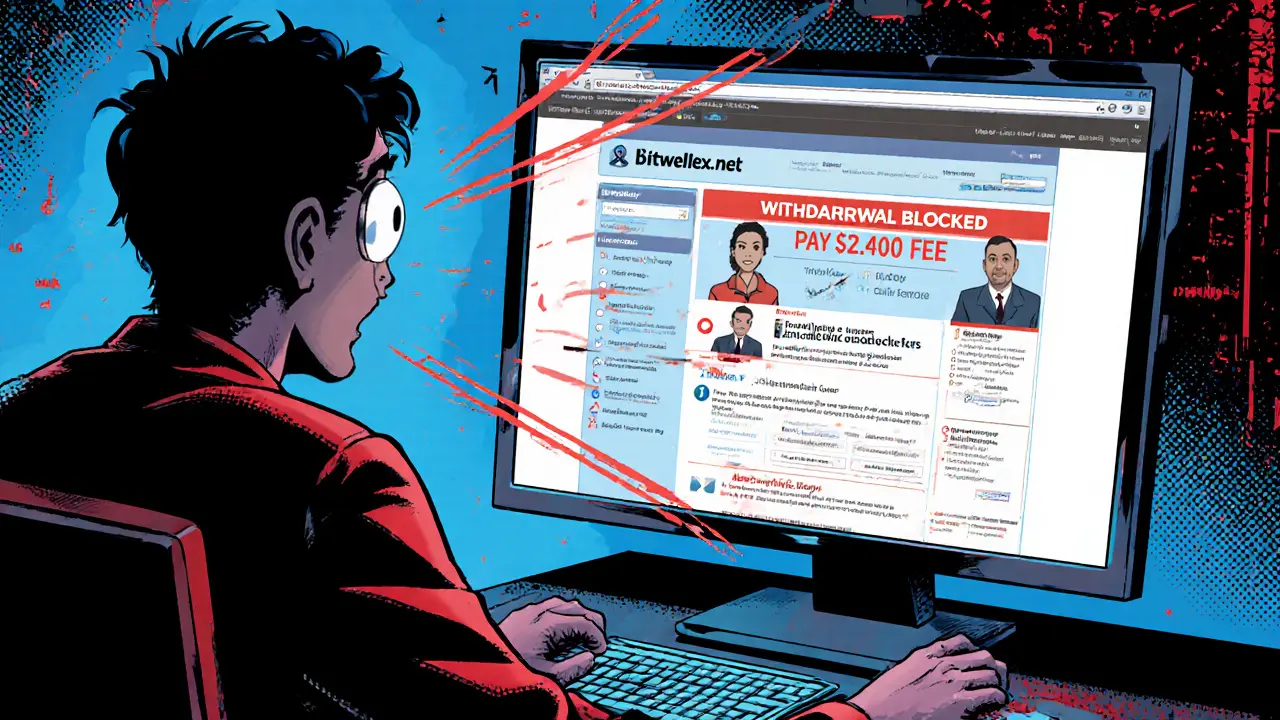
What happened to the website? It’s gone - and so are the team
As of April 2025, bitwell.com no longer works. If you type it in, you get a connection error. Some users report being redirected to bitwellex.net, which looks similar but has no official ties to the original platform. Cryptowisser labeled BitWell as "dead" in their Exchange Graveyard. Cryptolegal UK, which tracks global crypto fraud, lists both domains as confirmed scam websites.
The people who built BitWell? They vanished. No LinkedIn profiles. No interviews. No press releases. Just a website that popped up, collected deposits, and shut down. That’s not a startup failure. That’s a deliberate exit strategy.
Why people still talk about BitWell - and why you should ignore them
You might still find old YouTube videos or Reddit threads saying "BitWell was great before it died." Those are either from users who got lucky with early withdrawals or bots pushing fake testimonials. The platform’s low fees were attractive - but so were the fees on Ponzi schemes. Low cost doesn’t mean safe.
Even Slashdot’s January 2025 review, which praised BitWell’s interface and order types, was written before the flood of withdrawal complaints hit. That review is now outdated and misleading. Don’t trust nostalgia. Trust evidence.
What to do if you still have an account on BitWell
If you deposited funds into BitWell and haven’t withdrawn them, you’re in a tough spot. There’s no official customer support. No legal recourse. No government agency to file a complaint with - because BitWell had no legal presence.
Some users tried contacting bitwellex.net, hoping for help recovering funds. A few got partial refunds after weeks of back-and-forth. But most didn’t. And those who did paid extra fees or gave up more crypto to "unlock" their accounts. This is the trap: recovery scams target people who are already victims.
Your best move? Accept the loss. Block all BitWell-related websites. Change your passwords. Never reuse the same wallet or email on another exchange. And report the scam to your local financial authority - even if they can’t help, your report adds to the evidence that keeps others from falling in.
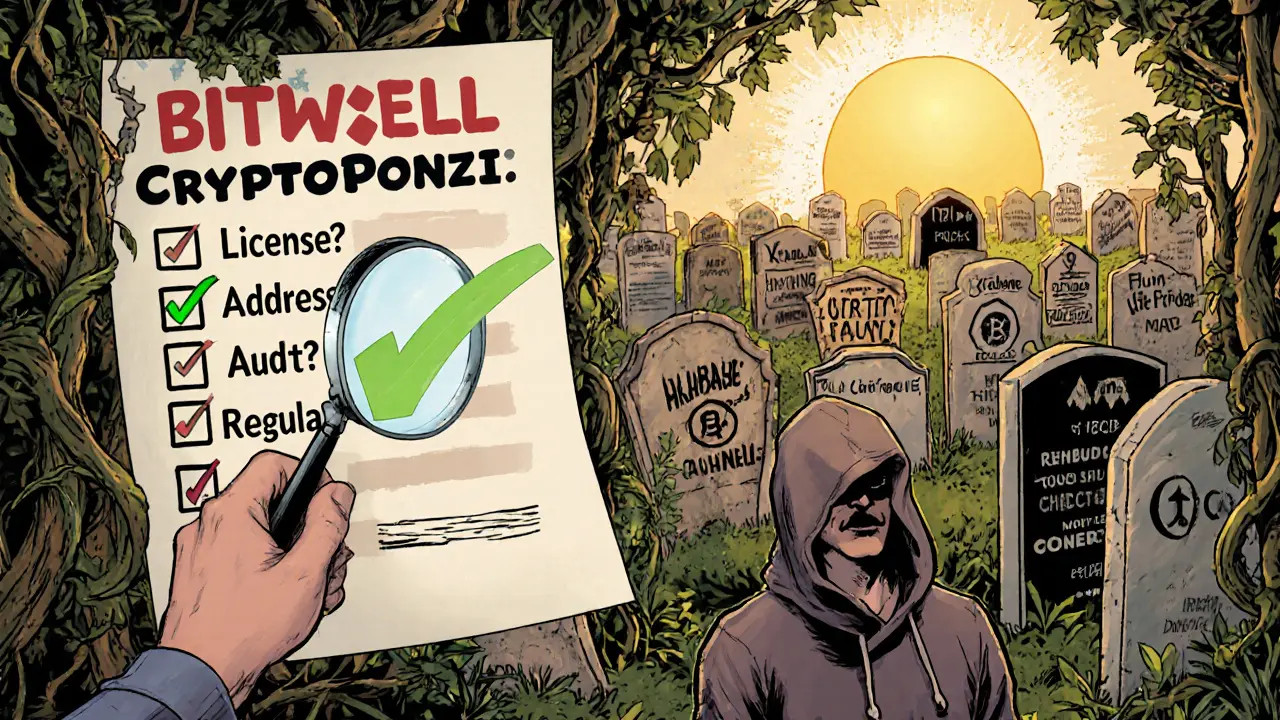
Safe alternatives to BitWell - exchanges that actually exist
If you’re looking for a crypto exchange that won’t vanish with your money, stick with platforms that have:
- Real licenses (like Coinbase in the U.S., Binance in Dubai, Kraken in Germany)
- Public financial statements or audits
- Clear company addresses and legal teams
- Verified customer support channels (not just live chat that takes hours to respond)
For spot trading, Coinbase and Kraken are reliable. For derivatives, Deribit leads the market with over 80% Bitcoin options volume in Q1 2025. Both are regulated, transparent, and have been around for years. They don’t need gimmicks like "DeFi options" to attract users. They earn trust by staying open and accountable.
How to avoid BitWell-style scams in the future
Here’s a simple checklist before you deposit money on any exchange:
- Search for "[exchange name] + scam" or "[exchange name] + withdrawal issues" - if you see more than 5 complaints, walk away.
- Check if the exchange is listed on Traders Union, Cryptowisser, or Cryptolegal UK. If it’s in their "graveyard" or "blacklist," don’t even click.
- Look for a physical address and registration number. If it’s just a PO box or "registered in Seychelles," that’s a warning.
- Verify regulatory status. Go to the website of a real regulator like the SEC, FCA, or MAS and search for the exchange name.
- Never trust promises of "unique products" like "DeFi options" unless they’re explained clearly and independently verified.
Low fees are nice. But not worth losing your life savings.
Frequently Asked Questions
Is BitWell still operating as a crypto exchange?
No. BitWell stopped operating in late 2024. Its official website (bitwell.com) no longer works, and its domain now redirects to bitwellex.net - a site linked to recovery scams. Multiple independent sources, including Cryptowisser and Traders Union, have confirmed BitWell is defunct.
Can I get my money back from BitWell?
It’s extremely unlikely. Over 78% of users who reported issues were unable to withdraw funds. Some users claim they recovered money through bitwellex.net, but this site is not affiliated with the original BitWell team. Many reports suggest it’s a second-layer scam targeting people desperate to recover lost funds. Do not send more crypto to any recovery service.
Why did BitWell fail when other exchanges succeeded?
BitWell failed because it ignored regulation. While top exchanges got licenses from authorities like the SEC or FCA, BitWell operated in Seychelles - a jurisdiction known for hosting frauds. It also lacked transparency: no legal address, no compliance info, no audit. When regulators cracked down on unlicensed exchanges in 2024, BitWell had no protection and no credibility.
Were BitWell’s trading fees really that good?
Yes - at first. BitWell offered taker fees as low as 0.09% for spot trading, which was below the industry average of 0.221%. But low fees don’t make an exchange safe. Many scam platforms use low fees to lure users in. BitWell’s fees were a trap - you got a good price, but no way to withdraw your profits.
What should I use instead of BitWell?
Use exchanges with real regulation: Coinbase for U.S. users, Kraken for global spot trading, or Deribit for derivatives. All are licensed, audited, and have public track records. Avoid any exchange that doesn’t list its legal registration, physical address, or regulatory status on its website.
Cormac Riverton
I'm a blockchain analyst and private investor specializing in cryptocurrencies and equity markets. I research tokenomics, on-chain data, and market microstructure, and advise startups on exchange listings. I also write practical explainers and strategy notes for retail traders and fund teams. My work blends quantitative analysis with clear storytelling to make complex systems understandable.
About
DEX Maniac is your hub for blockchain knowledge, cryptocurrencies, and global markets. Explore guides on crypto coins, DeFi, and decentralized exchanges with clear, actionable insights. Compare crypto exchanges, track airdrop opportunities, and follow timely market analysis across crypto and stocks. Stay informed with curated news, tools, and insights for smarter decisions.

